Understanding the English Calendar for 2025: A Comprehensive Guide
Relaterede Artikler: Understanding the English Calendar for 2025: A Comprehensive Guide
Introduktion
Med stor fornøjelse vil vi udforske det spændende emne relateret til Understanding the English Calendar for 2025: A Comprehensive Guide. Lad os væve interessant information og tilbyde friske perspektiver til læserne.
Table of Content
Understanding the English Calendar for 2025: A Comprehensive Guide

The English calendar for 2025, a standard Gregorian calendar, follows a familiar pattern of twelve months, each with a specific number of days. It is a tool that helps us navigate time, schedule events, and organize our lives. This article aims to provide a comprehensive understanding of the English calendar for 2025, exploring its structure, key dates, and practical applications.
The Structure of the English Calendar
The English calendar, also known as the Gregorian calendar, is a solar calendar based on the Earth’s revolution around the sun. It comprises twelve months, each with a specific number of days:
- January: 31 days
- February: 28 days (29 days in leap years)
- March: 31 days
- April: 30 days
- May: 31 days
- June: 30 days
- July: 31 days
- August: 31 days
- September: 30 days
- October: 31 days
- November: 30 days
- December: 31 days
The calendar also includes seven days of the week, starting with Sunday and ending with Saturday.
Key Dates in the English Calendar for 2025
The English calendar for 2025 features several important dates, including:
- New Year’s Day: January 1st
- Martin Luther King Jr. Day: January 20th (observed in the United States)
- Presidents’ Day: February 17th (observed in the United States)
- Memorial Day: May 26th (observed in the United States)
- Independence Day: July 4th (observed in the United States)
- Labor Day: September 1st (observed in the United States)
- Columbus Day: October 12th (observed in the United States)
- Veterans Day: November 11th (observed in the United States)
- Thanksgiving Day: November 27th (observed in the United States)
- Christmas Day: December 25th
Practical Applications of the English Calendar
The English calendar plays a vital role in various aspects of our lives:
- Scheduling: It allows us to schedule appointments, meetings, and events.
- Planning: It helps us plan vacations, holidays, and other activities.
- Tracking: It enables us to track deadlines, projects, and personal goals.
- Communication: It provides a common framework for communication regarding dates and times.
- Historical Context: It offers a chronological framework for understanding historical events.
FAQs
Q: Why is February the shortest month?
A: February’s shorter length originates from the Roman calendar, where it was the second month. It was originally 30 days long but was shortened to 29 days by Julius Caesar, with an additional day added in leap years.
Q: How often is a leap year?
A: A leap year occurs every four years, with the exception of years divisible by 100 but not by 400. This ensures that the calendar year remains synchronized with the Earth’s solar year.
Q: What is the difference between a Gregorian calendar and a Julian calendar?
A: The Gregorian calendar, the one currently used, is a refined version of the Julian calendar. The Julian calendar, introduced by Julius Caesar, overestimated the length of a year by about 11 minutes, leading to a drift in the calendar’s alignment with the seasons. The Gregorian calendar addressed this by adjusting the leap year rules.
Q: Are there any other calendar systems used globally?
A: Yes, different cultures and religions utilize various calendar systems. Some notable examples include the Islamic calendar, the Hebrew calendar, and the Chinese calendar.
Tips for Using the English Calendar Effectively
- Utilize a planner or digital calendar: This helps you track appointments, deadlines, and events.
- Set reminders: Utilize calendar features to set reminders for important dates.
- Review your calendar regularly: This ensures you stay organized and on top of your schedule.
- Be aware of time zones: When scheduling events with individuals in different time zones, be mindful of the time difference.
- Adapt to changing needs: As your priorities and commitments evolve, adjust your calendar accordingly.
Conclusion
The English calendar for 2025 provides a comprehensive framework for navigating time, scheduling events, and managing our lives effectively. Understanding its structure, key dates, and practical applications empowers us to utilize it as a valuable tool for organization, planning, and communication. By embracing its principles and implementing practical tips, we can maximize its benefits and streamline our daily routines.
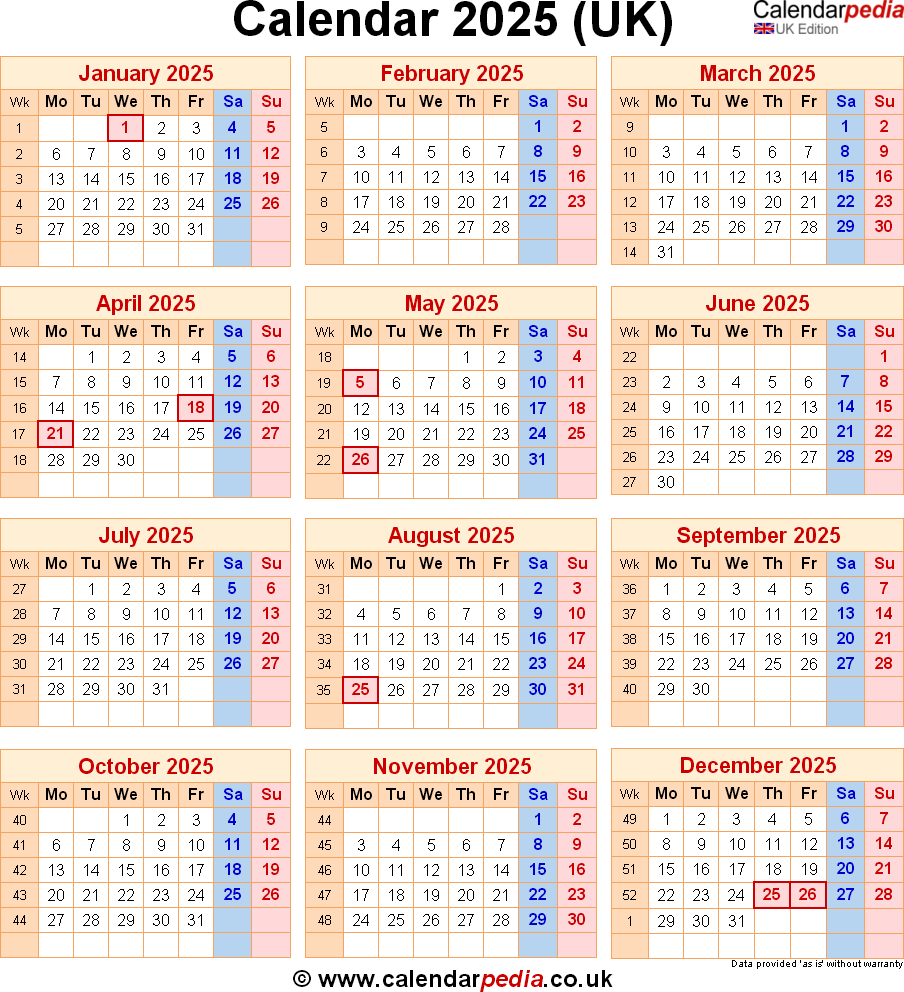

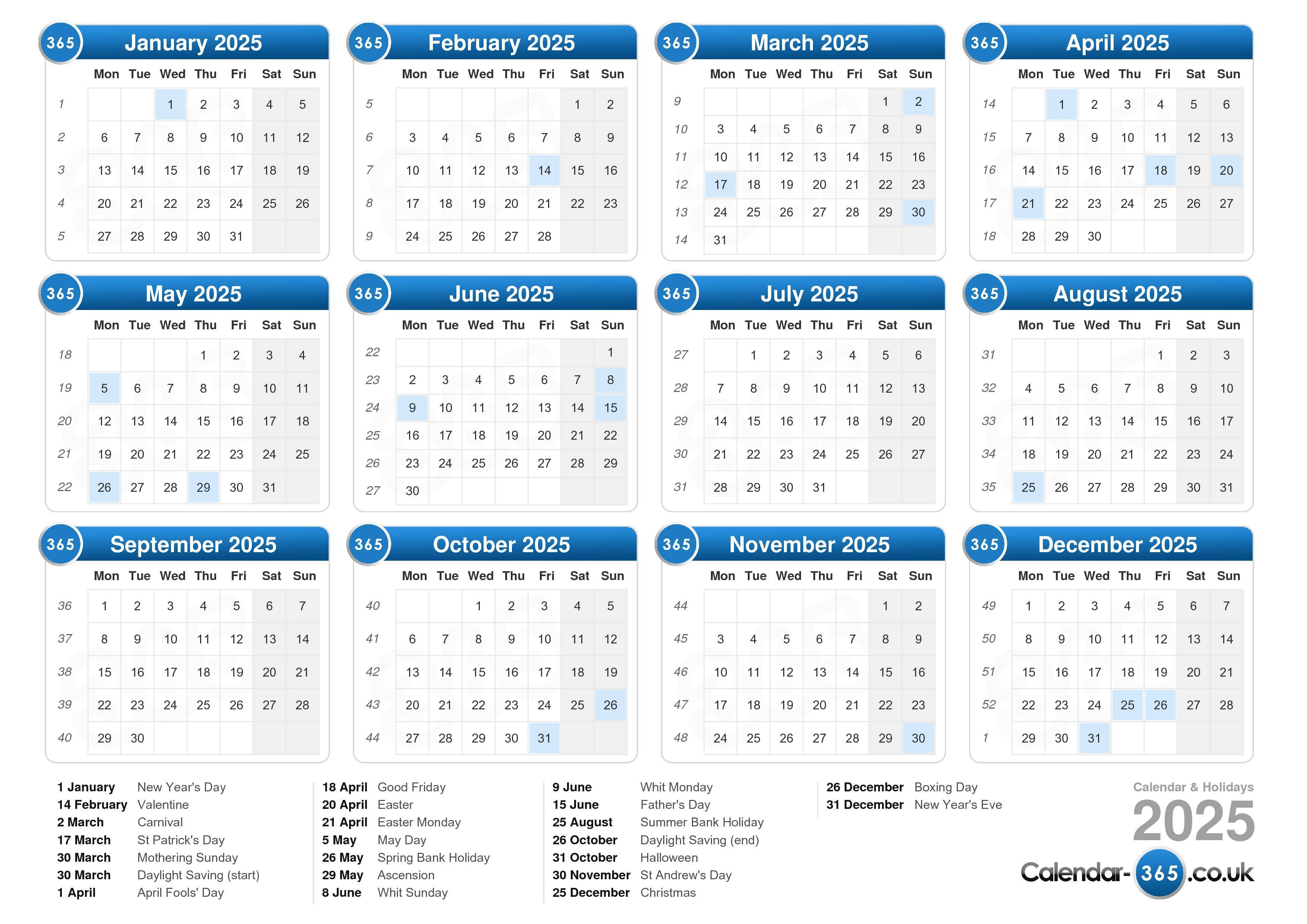
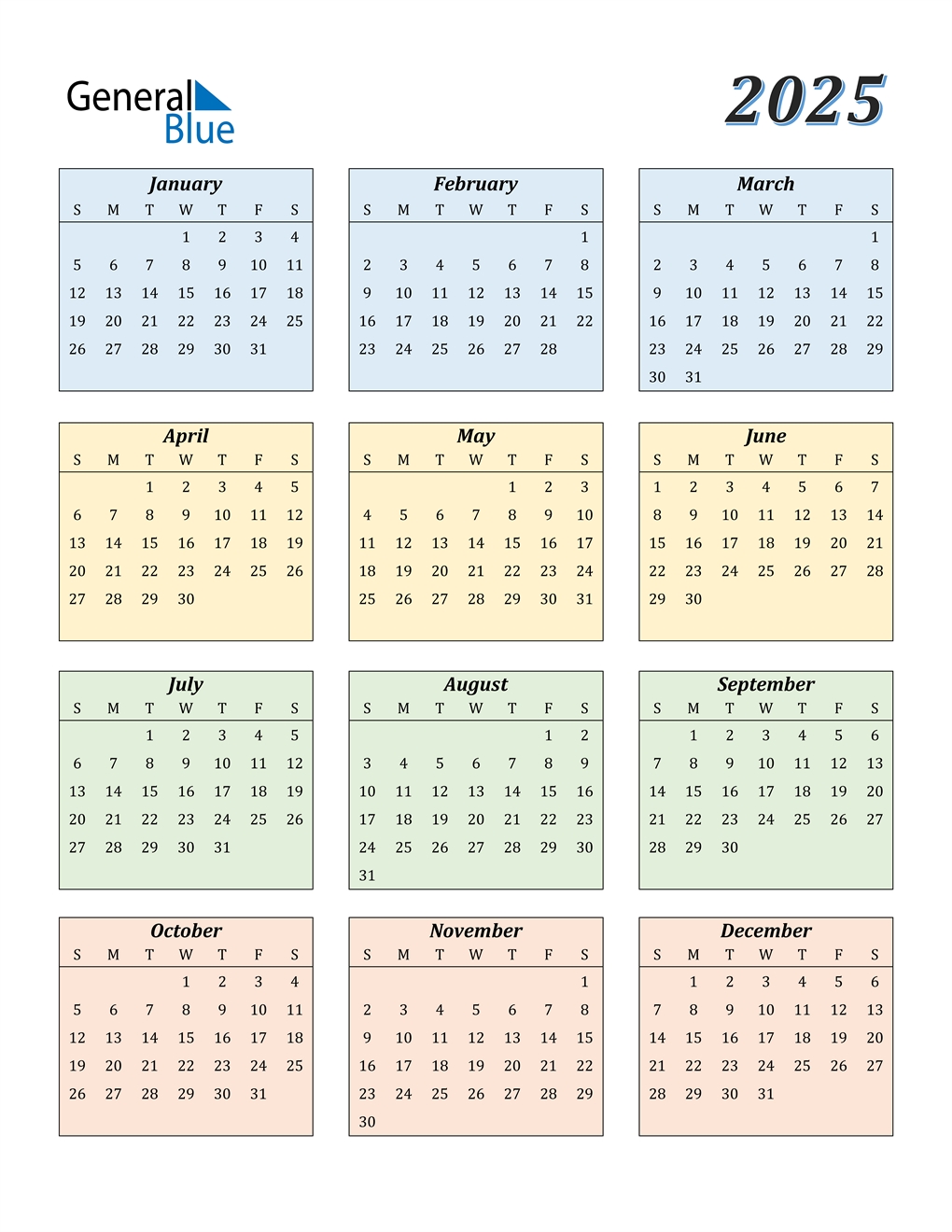
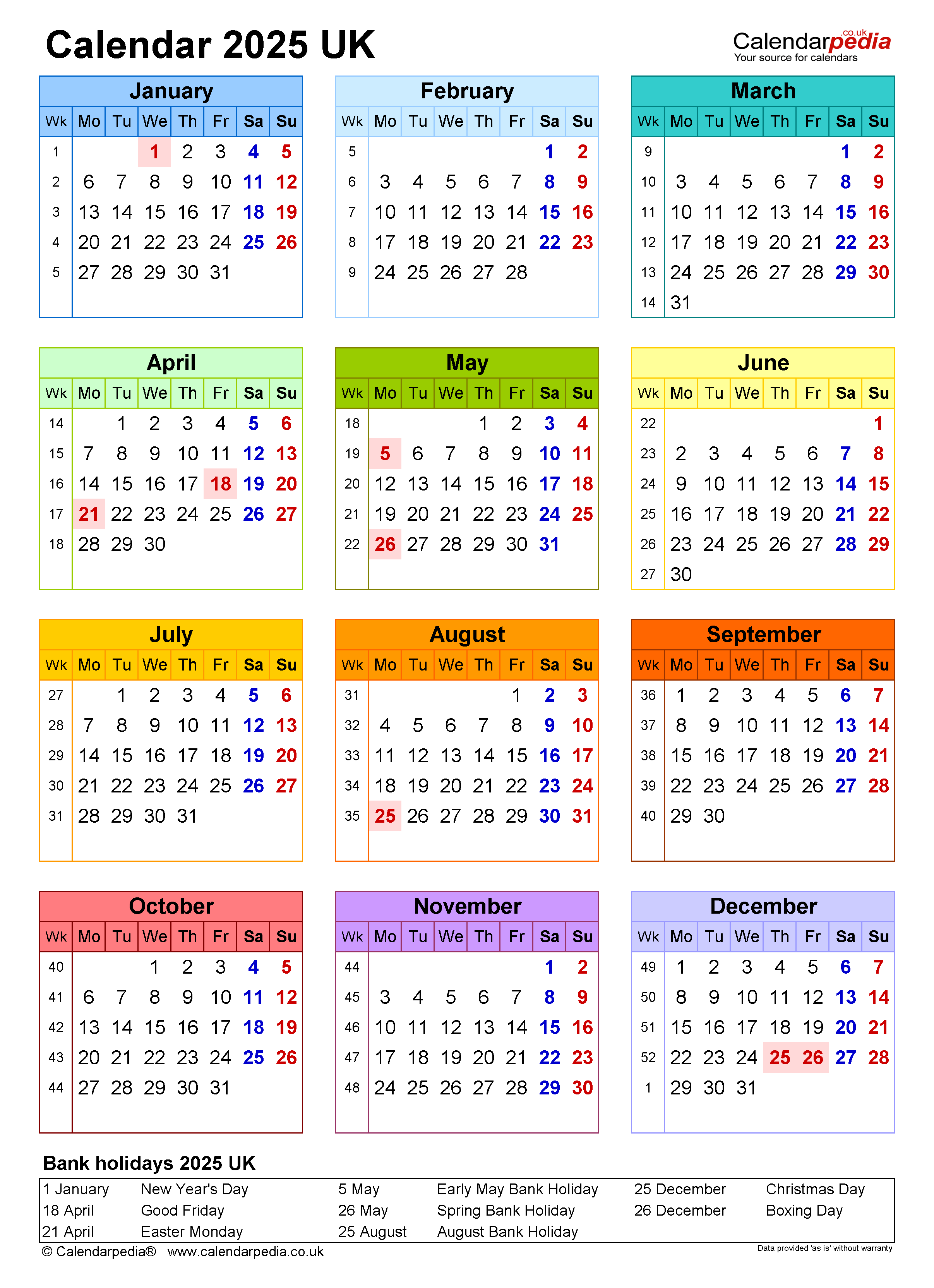
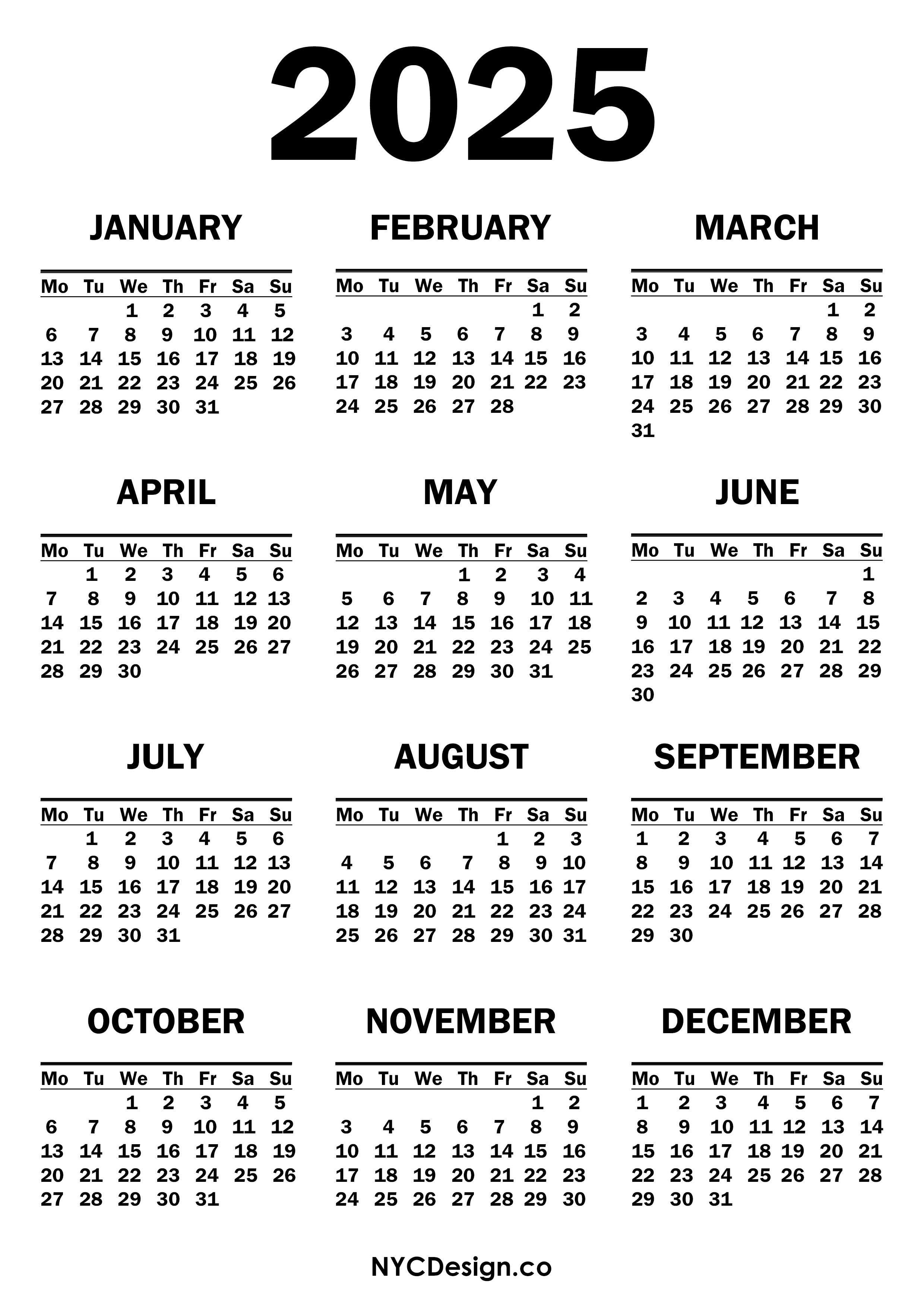
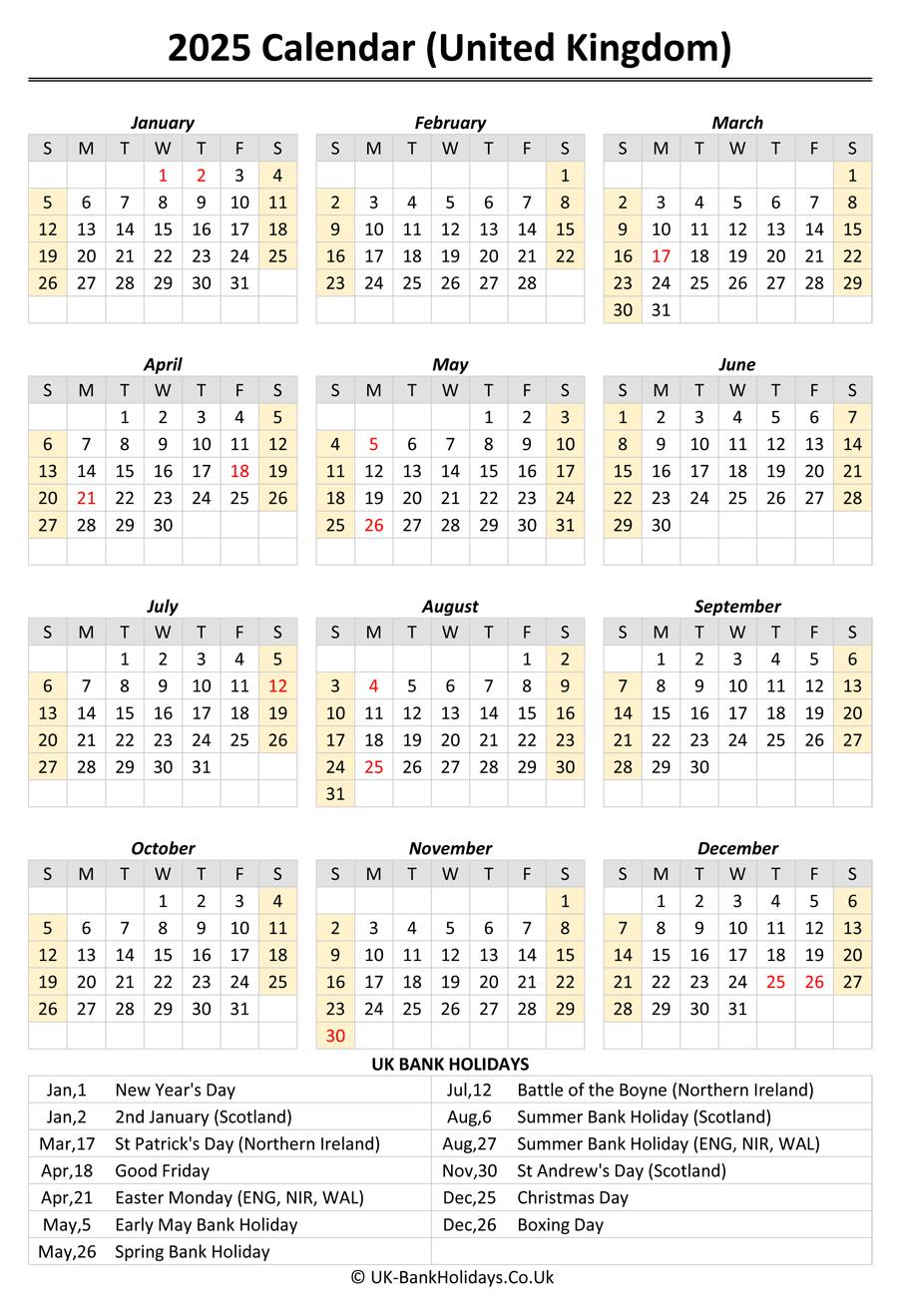
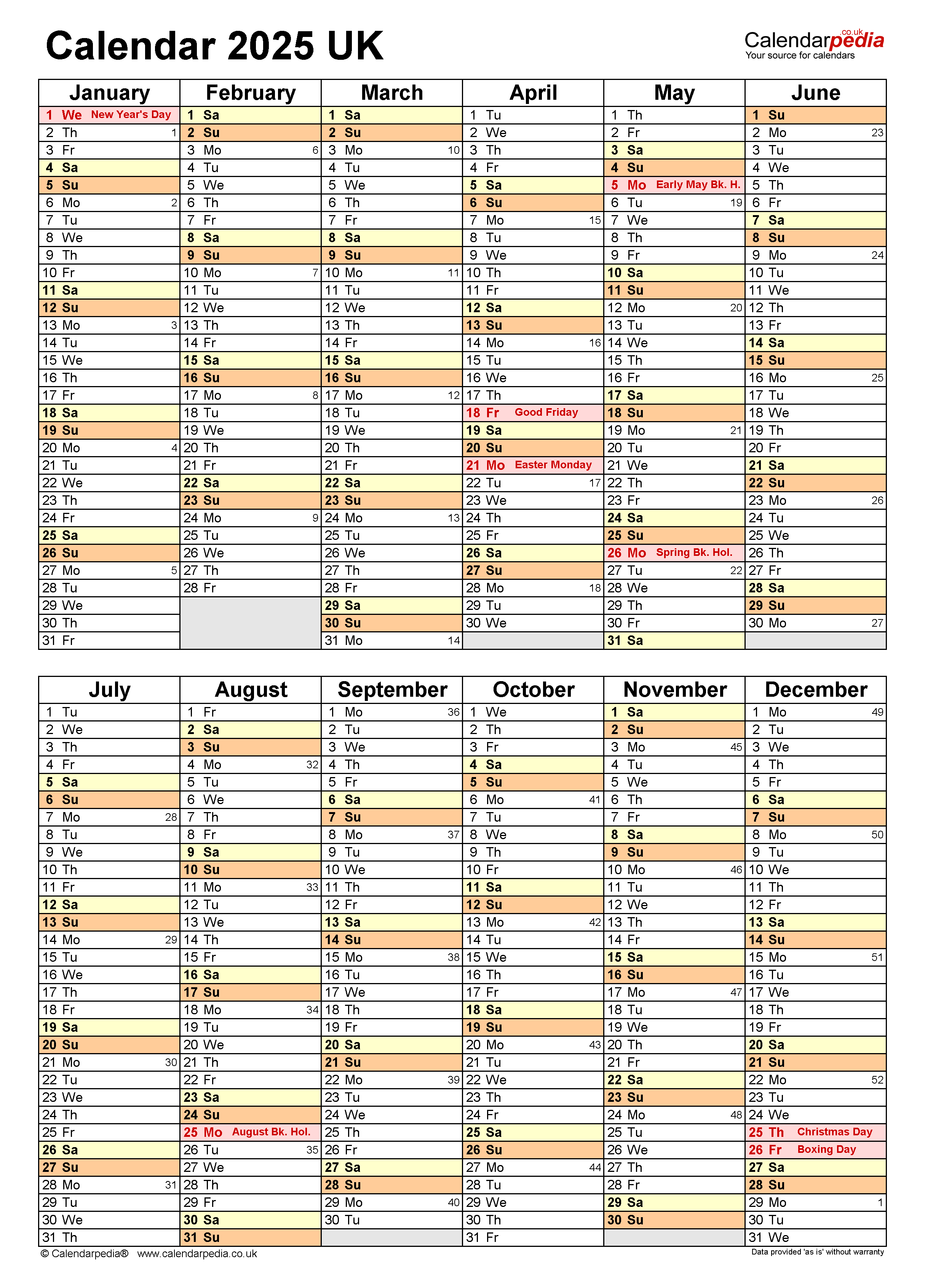
Lukning
Derfor håber vi, at denne artikel har givet værdifuld indsigt i Understanding the English Calendar for 2025: A Comprehensive Guide. Vi håber, du finder denne artikel informativ og gavnlig. Vi ses i vores næste artikel!